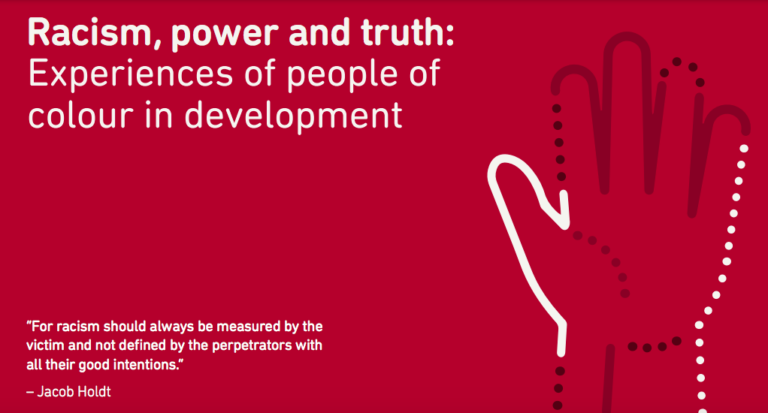Majority feel their organisation lacks commitment to diversity, equality & inclusion, says survey

Almost 90% of people surveyed across UK NGOs feel their organisations are not truly committed to diversity, equality and inclusion, according to a report from Bond.
The report, Racism, Power & Truth, surveyed 150 people of colour, 68% of which said that they had experienced an incident of racism in the workplace within the past year or had supported someone else who experienced a racist incident.
The report also reveals that 85% of respondents felt that as a person of colour, getting promoted in the sector was not accessible to them – promotion was seen as a reward only accessible to people from non-minoritised groups. 65% felt they had not had equal access to mentors as their white peers.
Advertisement
In addition:
- 69% did not feel they had been able to take leadership on internal initiatives as much as their white peers had
- 71% said they had fewer opportunities to represent their organisations externally than their white peers did
- 50% said they had not had the same training opportunities as their white peers
Lena Bheeroo, lead author of the report and Engagement & Equity Manager at Bond, said:
“Across the UK NGO sector, people of colour are underrepresented in senior roles, and facing multiple barriers to career progression, with the odds stacked against them.
“For a sector that is working to champion people’s rights, fairness and equality, this is a big problem. Organisations must not shy away from speaking about racism and anti-Blackness. They have the responsibility to move beyond diversity in just HR terms, towards making better staffing decisions that better represent the countries and contexts that we work in.
“CEOs and board members should commit to sponsoring people of colour by investing time with them, opening doors, bringing them into existing networks and championing them publicly.
“On an individual level, people need to reflect on their levels of privilege and power and their position within the sector, so that they can start to take steps to disrupt the dynamics at play.”




